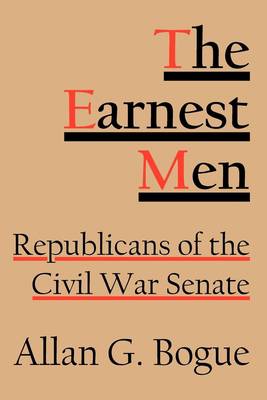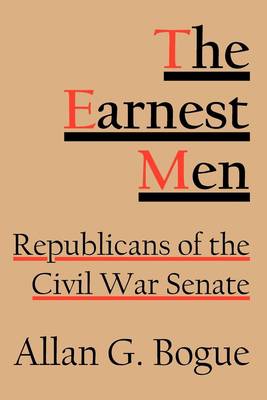
- Afhalen na 1 uur in een winkel met voorraad
- Gratis thuislevering in België vanaf € 30
- Ruim aanbod met 7 miljoen producten
- Afhalen na 1 uur in een winkel met voorraad
- Gratis thuislevering in België vanaf € 30
- Ruim aanbod met 7 miljoen producten
Omschrijving
Taking a quantitative approach, Allan G. Bogue assesses the nature of radical and conservative Republicanism in the Civil War Senate, documents the distinctions among the senators, and clarifies the factors that encouraged or discouraged factionalism. The Earnest Men is divided into two parts: "Men, Context, and Patterns" and "The Substance of Disagreement." In Part One, Bogue investigates the backgrounds of the senators and the institutional structure of the Senate, and he examines the character of leadership exercised in the Senate chamber. He then uses roll-call analysis as a means of establishing distinctions between radical and moderate senators. To account for their voting patterns, he considers living arrangements, seating, regionalism, and election results.In Part Two, Bogue looks closely at the debates in the Senate in order to ascertain the nature of disagreements between radical and moderate Republicans in such policy-making areas as slavery, taxation, human rights, punishment and rehabilitation, and legislation affecting the border states. Taking issue with the idea that the Republicans were essentially unified on the issues of the day, he finds that their differences were widespread and important. A major study of the Senate in one of its most productive periods, The Earnest Men is a remarkable combination of systematic analysis and narrative history.
Specificaties
Betrokkenen
- Auteur(s):
- Uitgeverij:
Inhoud
- Aantal bladzijden:
- 372
- Taal:
- Engels
Eigenschappen
- Productcode (EAN):
- 9780801413575
- Verschijningsdatum:
- 30/11/1981
- Uitvoering:
- Hardcover
- Formaat:
- Genaaid
- Afmetingen:
- 156 mm x 234 mm
- Gewicht:
- 693 g

Alleen bij Standaard Boekhandel
Beoordelingen
We publiceren alleen reviews die voldoen aan de voorwaarden voor reviews. Bekijk onze voorwaarden voor reviews.











